Date published: 25th November 2022
Did you know, Australians lost over $6.5 million because of scam SMS this year. This number has increased significantly by 188 per cent compared to last year. Scams SMS are a real concern that mobile phone users should be wary of.
Scam SMS form a major component (about 32%) of all reported scams, therefore, it is prudent that we know how to spot one and what to do to avoid falling victim to a scam SMS.

SCAM SMS – HOW TO SPOT AND IDENTIFY THEM
Watch out! An unexpected SMS can go from simply annoying to sparking some level of curiosity, which is why it’s important for you to know how to determine if a SMS is fraudulent and ingenuine.
COMMON SCAM SMS CHARACTERISTICS
Although each SMS scam is different and they are rapidly evolving, they do share some common characteristics and have the common intent of deceiving you and causing you harm.
Here are some common characteristics of scam SMSs:
• the SMS is attempting to get you to click on a malicious URL
• the SMS is attempting to engage you by prompting a call or return SMS to the scammer
• the SMS is attempting to obtain your personal or financial information
• the SMS claims to be from the government, post office, a bank or other legitimate organisation
• the SMS promises something that is too good to be true (for example you have won a prize or money)
Here are some common examples of scam SMS:
| Example | What to look out for |
|---|---|
| The SMS is trying to bait you into clicking on links promising you something | – Promise free prizes, gift cards, or coupons – but they’re not real – Promise you a too good to be true refund, rebate or offer – but there is no refund, rebate or offer |
The SMS creates a false sense of urgency in order to make you do something you wouldn’t normally do, such as providing your login credentials, personal or financial information. | – They are alerting you to some suspicious activity on your bank account log-ins – but there isn’t – There is a problem with a recent payment or your payment details – but there isn’t – There is an outstanding invoice, sends you the invoice and requires you to pay – but there isn’t – There is a delivery on route – but there isn’t Scam SMS Examples 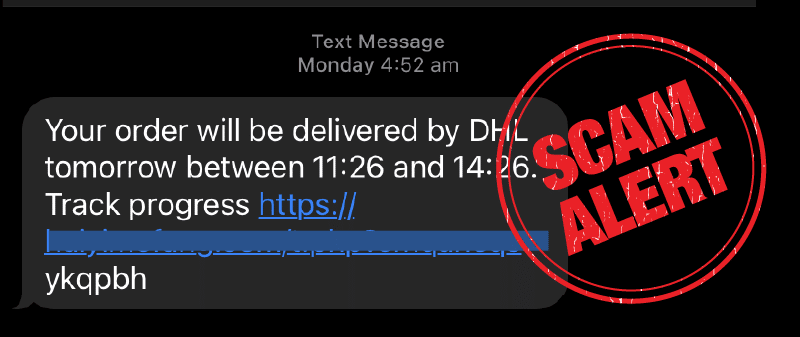 Source: ACMA 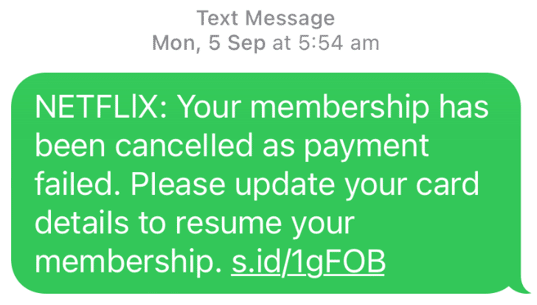 |
The SMS is impersonating someone close to you, such as a family member, fakes an emergency situation and asks you to transfer money to them immediately. | Scam SMS Example 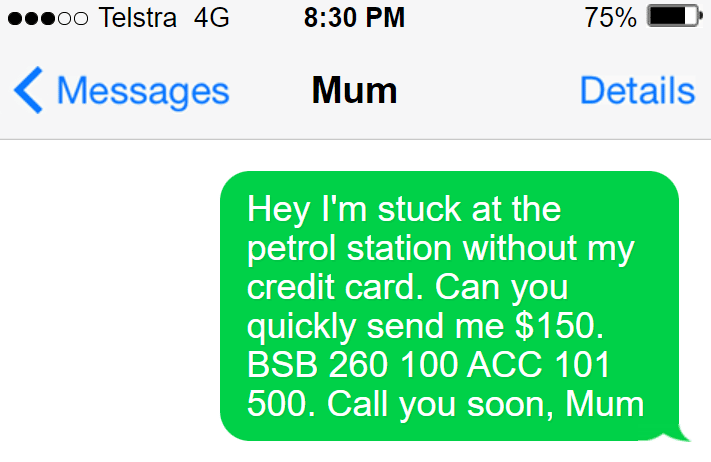 |
The SMS is imitating a government authority or department, such as the Australian Taxation Office (ATO) or the Service NSW, and requests you provide your personal information into a fake website. | Scam SMS Examples 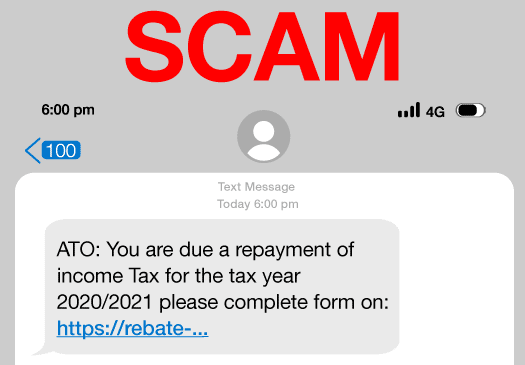 Source: ATO 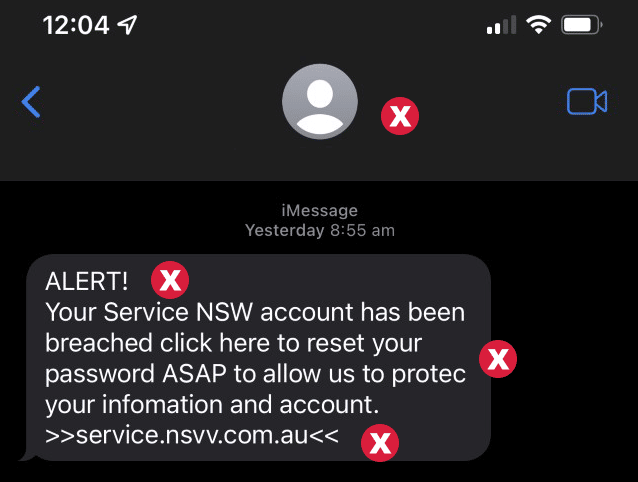 Source: NSW.gov |
REPORTING SMS SCAM
If you suspect you have received a SMS scam or are a victim of a SMS scam, report it to your relevant local law enforcement, government authority or organisation, which in Australia is Scamwatch.
For more information about scam SMS and how to protect yourself, feel free to visit resources by Scamwatch or the Australian Communications and Media Authority (ACMA).
